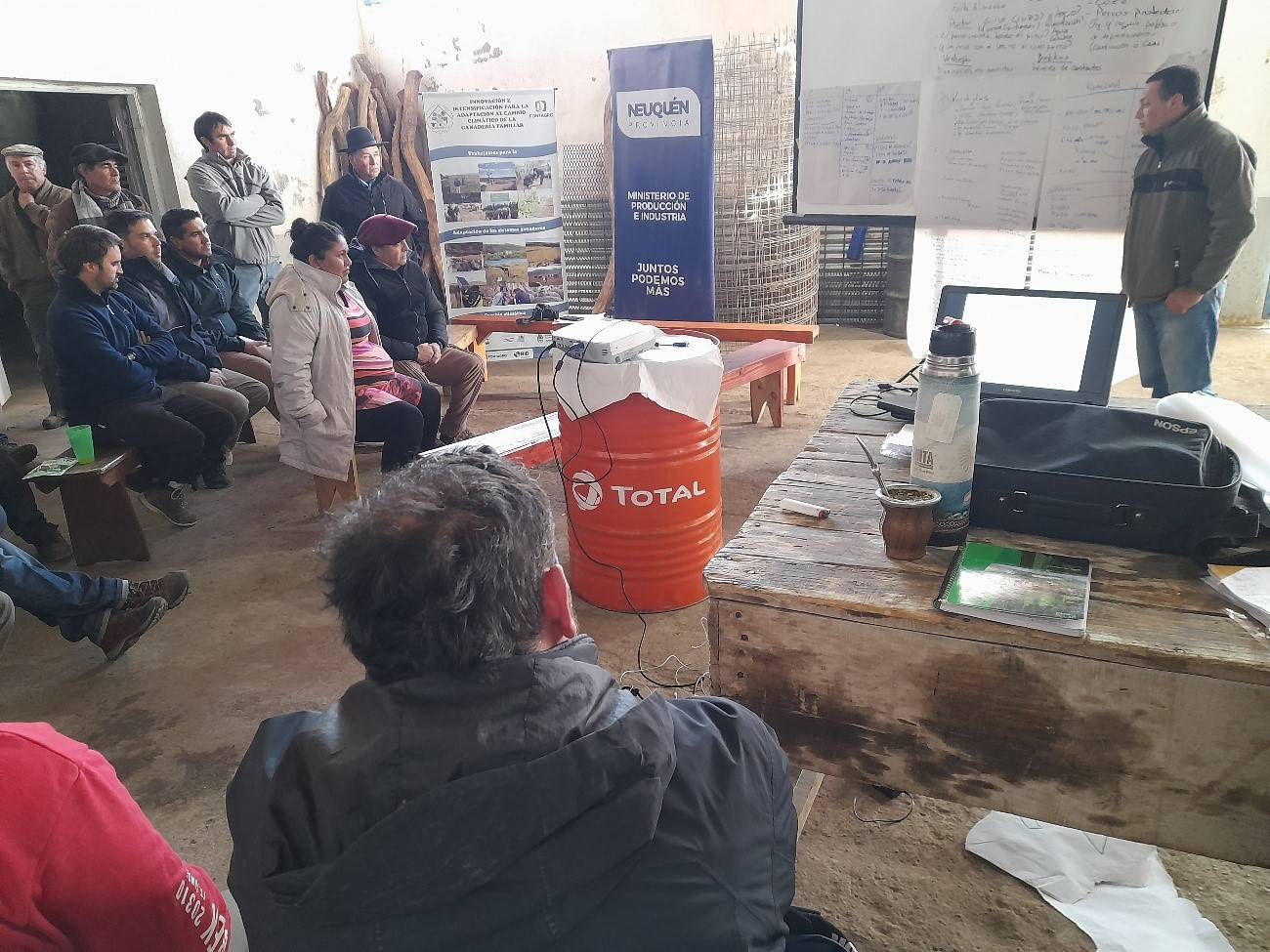On June 2, 2022, in Los Guañacos, Neuquén, a workshop was held with producers and technicians on the use of tools to reduce predation damage in goat and sheep herds.

Adaptation of livestock systems to climate change implies changes in herd management and the incorporation of new tools and technologies. Faced with predation problems, producers incorporate tools to mitigate and reduce losses and improve their production indexes.
As part of the FONTAGRO project "Innovating and intensifying livestock farming to adapt and grow: Increasing the adaptive capacity and resilience of family systems for extensive livestock farming better prepared for climate change in Argentina and Peru", a workshop was held on the use of tools to reduce and mitigate damage due to predation. The activity was held in Los Guañacos, Neuquén, and was aimed at promoting the exchange of knowledge and experiences among producers and technicians regarding livestock management in general, with emphasis on actions taken to reduce losses due to predation caused by puma, fox and bighorn dog.
The workshop was attended by 45 participants, including producers and technicians from all over the province of Neuquén. The activity began with a space for presentations by technicians where they worked on the actions taken by the institutions to address production problems caused by predation. In a second stage, small groups worked on the exchange of experiences on the following topics: general management of sheep and goat flocks, main production problems, problems related to predation, and the use of livestock protection dogs. Producers who have protection dogs were encouraged to share their experiences and the way they work to mitigate losses due to predation.
In a final closing session, a plenary session was held with the main ideas that emerged in each working group and joint actions were outlined to be carried out in relation to the issue of predation.
This activity was framed in actions carried out in northern Patagonia by INTA technicians from Zapala, Chos Malal and Bariloche, together with WCS (Wildlife Conservation Society), the Ministry of Production and Industry of Neuquén with the support of FONTAGRO.




